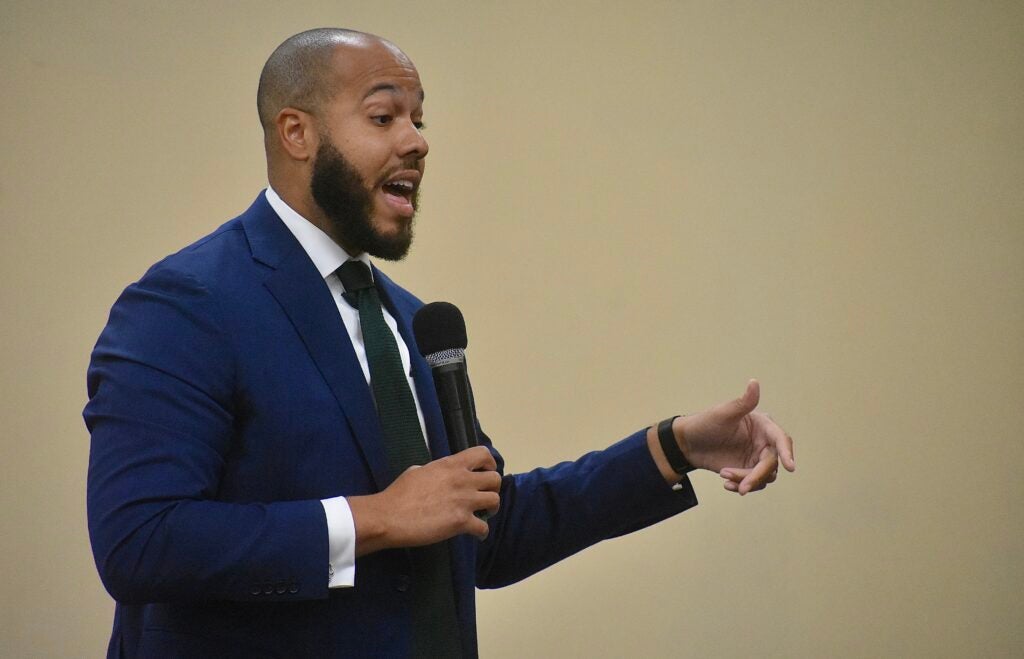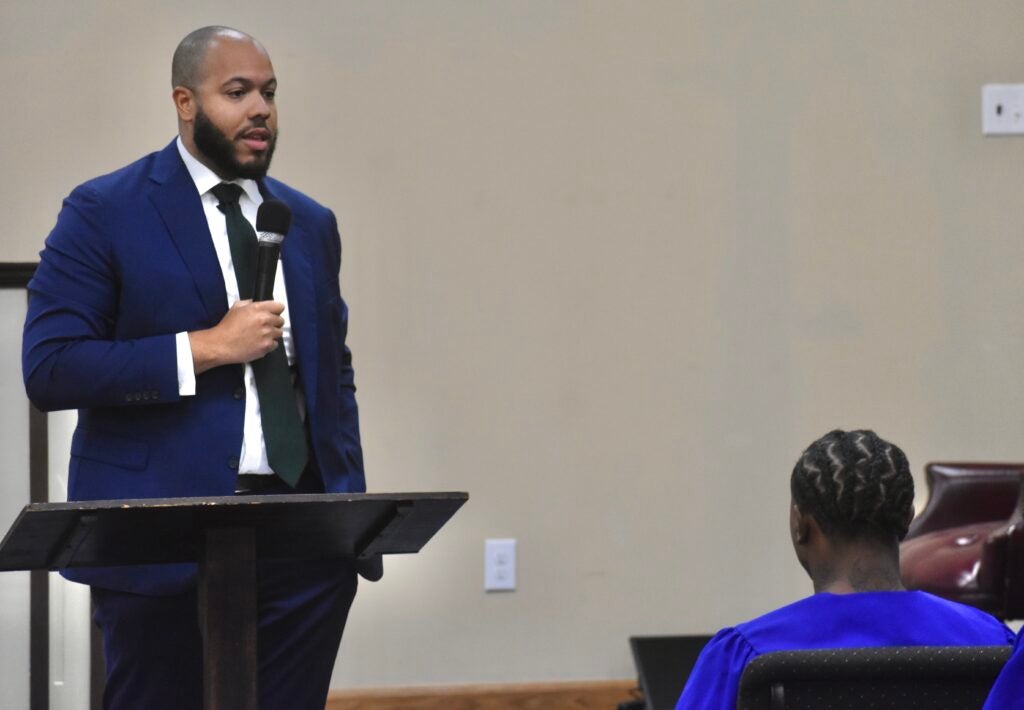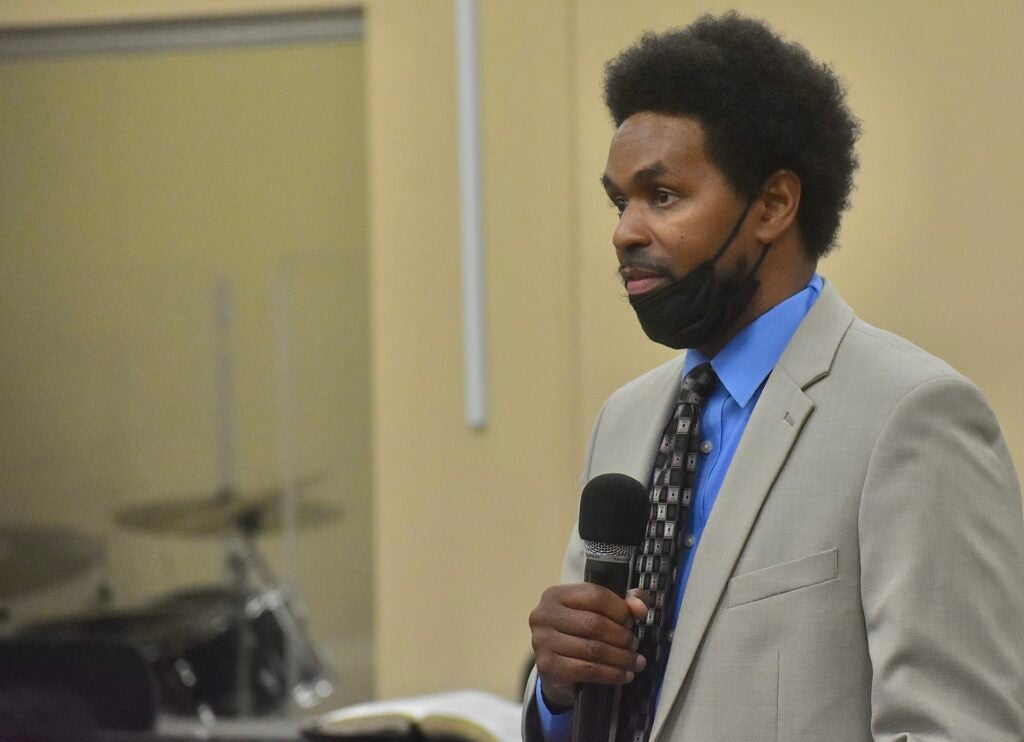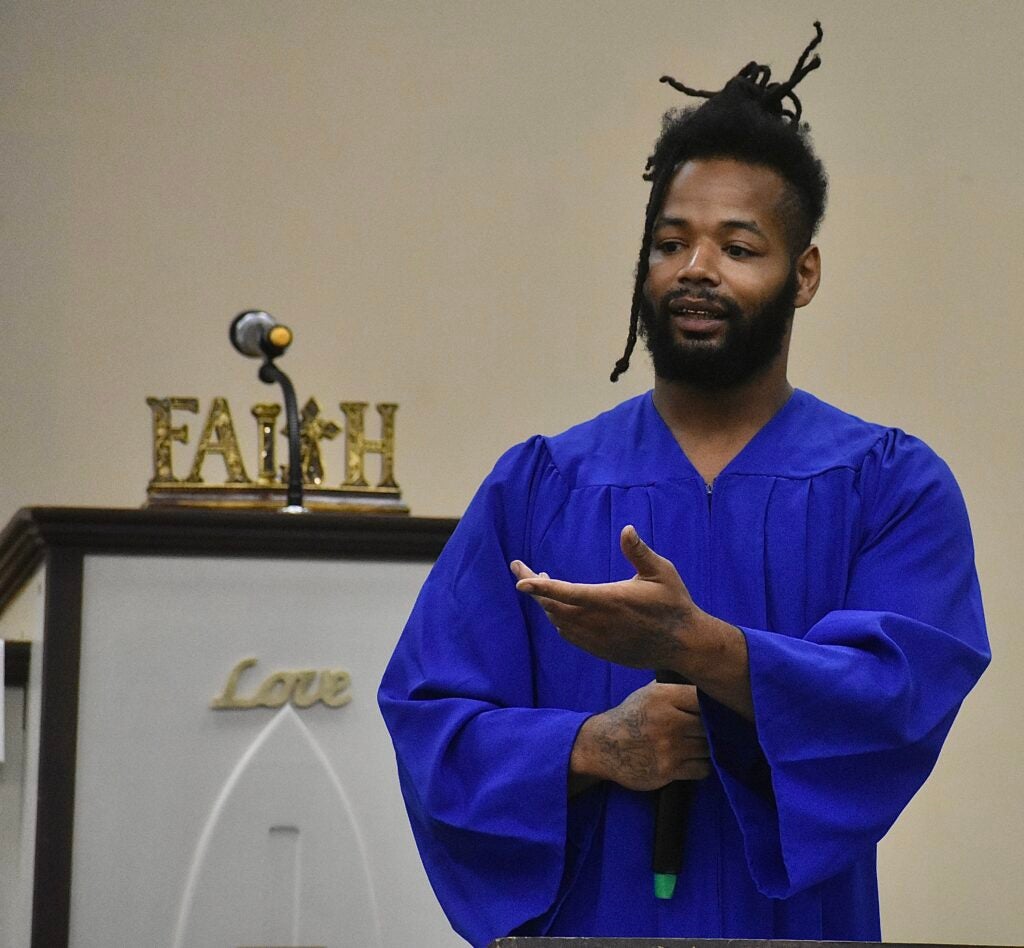The Georgia Department of Community Supervision’s local Day Reporting Center (DRC) held its 28th commencement ceremony for students on Thursday morning, July 28.
Just in time to align with the state’s Community Supervision Week, declared July 21 – 27 by Gov. Brian Kemp, the DRC celebrated the hard work and dedication of individuals who successfully completed a rehabilitation program. This consists of intensive supervision and counseling-based classes and activities to reduce recidivism and help people live productive, law-abiding lives.
The DRC program has become a cornerstone of local efforts to provide evidence-based interventions to individuals wanting to overcome personal challenges and reintegrate into society. The program helps about 200,000 people annually.
Intensive services by the DRC program target substance abuse, mental health and cognitive behavioral issues.
Andrew Houser, the Public Information Officer for the Georgia Department of Community Supervision, said DRC’s comprehensive program strays from a “cookie cutter” approach. The program views each participant as an individual with different challenges and life goals.
“We want to identify that person for who they are and the experiences that they’ve had, and that’s been our philosophy from the beginning,” he said. “We ask them what they want to get out of the program and then we help them work to accomplish that.”
District Attorney Jared Williams, the ceremony’s keynote speaker, said congratulating program graduates on their progress towards recovery was an honor. He added that he knows it’s all about “taking it a day at a time.”

“Substance abuse is inextricably linked with mental health issues, and to think that you can just punish your way into a solution is not what works,” he said. “Our jails and our prisons cannot be our primary mental health response. They cannot be our primary treatment facilities. We’ve got to have community partners, organizations, outside of confinement that can help people deal with the struggles they have.”
Williams said there are plenty of people in the world who are actively and purposefully hurting others, which need the attention of prosecutors and police. But those hurting themselves need treatment rather than jail time.
“We need our therapists, our counselors and those who can get them on the right path,” he said.
For Williams, the program is one of many passionate projects that can help teach many in the CSRA to stay out of the system. They can do this by letting go of unhealthy habits and coping mechanisms.
“We’re all struggling with something,” he said. “To let shame or hardships get in the way? We can’t afford that. We’re here and there are so many amazing opportunities, and so many partners who want to help.”
In several cases, Williams said it is common for politicians to forget or overlook the sufferings of those who might need help the most.

“A lot of times policymakers forget to talk to the ones who are impacted by those policies. So that results in us making decisions that don’t often benefit or match people’s realities,” he said. “When that happens, we’re not as successful as we want to be.”
Williams said he hopes more future participants complete the program in order to contribute to society and beat the “cycle of incarceration.”
“My goal is to listen and learn as much as we can, so that when we’re making decisions – which impact human lives – that we’re doing it in a way that propels them forward and gets them the help that they need to,” he said.
Following Williams’ speech and the ceremony’s end, graduates and family members said they looked forward to continuing their path to success and remembering the important lessons learned from the DRC.
“My favorite part is seeing them succeed,” said Center Administrator Daniel Davis. “Not only when they get to graduation but a year or two years from now when they’ll say, ‘hey the DRC saved my life.’”
Davis said he hopes graduates can remember is to surround themselves with a good support group that will keep them accountable. This support will also hold onto their self-image, despite their past actions.
“We taught them to get supportive, pro-social friends, and taught them skills to deal with their addiction,” he said. “A lot of [the graduates] develop close bonds here too … and it helps when someone else can identify with them. Here they have a lot of similar experiences to draw on.”

Actively involved with the DRC for over a decade, Davis said he loves the program’s focus on improving lives through establishing connections and teaching empowerment.
“To be able to come up with a solution to some of the unique challenges that our people suffer from – ones that really help them individually – is important because they’re all different, and their challenges are different,” he said. “Because we’re a larger agency, we have the ability and the resources to deal with them individually and put more time into helping them.”
Graduate Julian Johnson said completing the program was not easy, but the results and personal growth made it all worthwhile in the end.
“It took determination and discipline, and just believing in myself. Understanding that struggle builds character and that it’s not going to always be easy,” he said. “So, at the end of the day, I just kept pushing and I’m still striving.”
Thanks to the love of his mom, three supportive sisters and friends, Johnson said he was able to finish strong and looks forward to
“I have support and people who were bringing me here everyday,” he said.

Johnson’s mother Cheryl Hall-Goss said she believed the DRC program was important for the community and effective because it gave individuals a space to admit vulnerability without fear of shame, while giving them the tools to handle life’s natural ups and downs.
“It’s not that they don’t want to do better, it’s just that they don’t want to admit – especially black men – that there is an issue, like they are having problems,” she said. “Anyone who says they have no issues in their life, whatsoever, is not being honest with themselves.”
Hall-Goss said, for many, breaking the law stems from choosing “the lesser of two evils,” because they are not given the resources or the chance to change for the better.
“It’s changed [Johnson]. Now he’s motivated to get up … and he’s done so much better,” she said.
For others walking the path to recovery or reintegration into society, Johnson said a major factor included belief in one’s self and perseverance.
“Stay focused and after the storm it’ll be a rainbow,” he said.
For more information on the Georgia Department of Community Supervision and the Day Reporting Center program, visit: https://dcs.georgia.gov/








